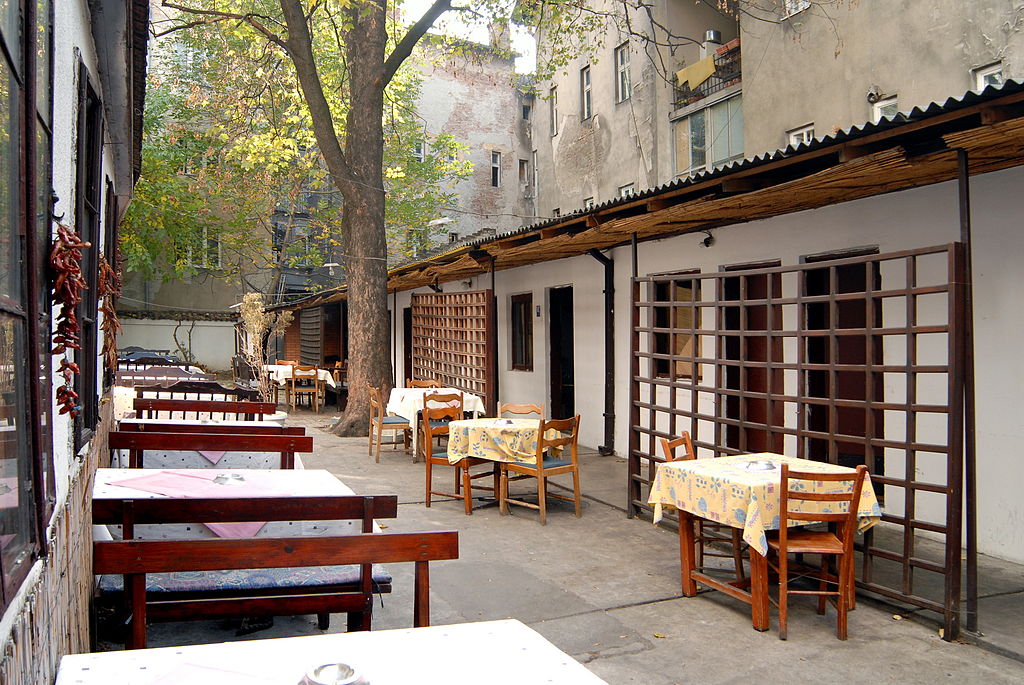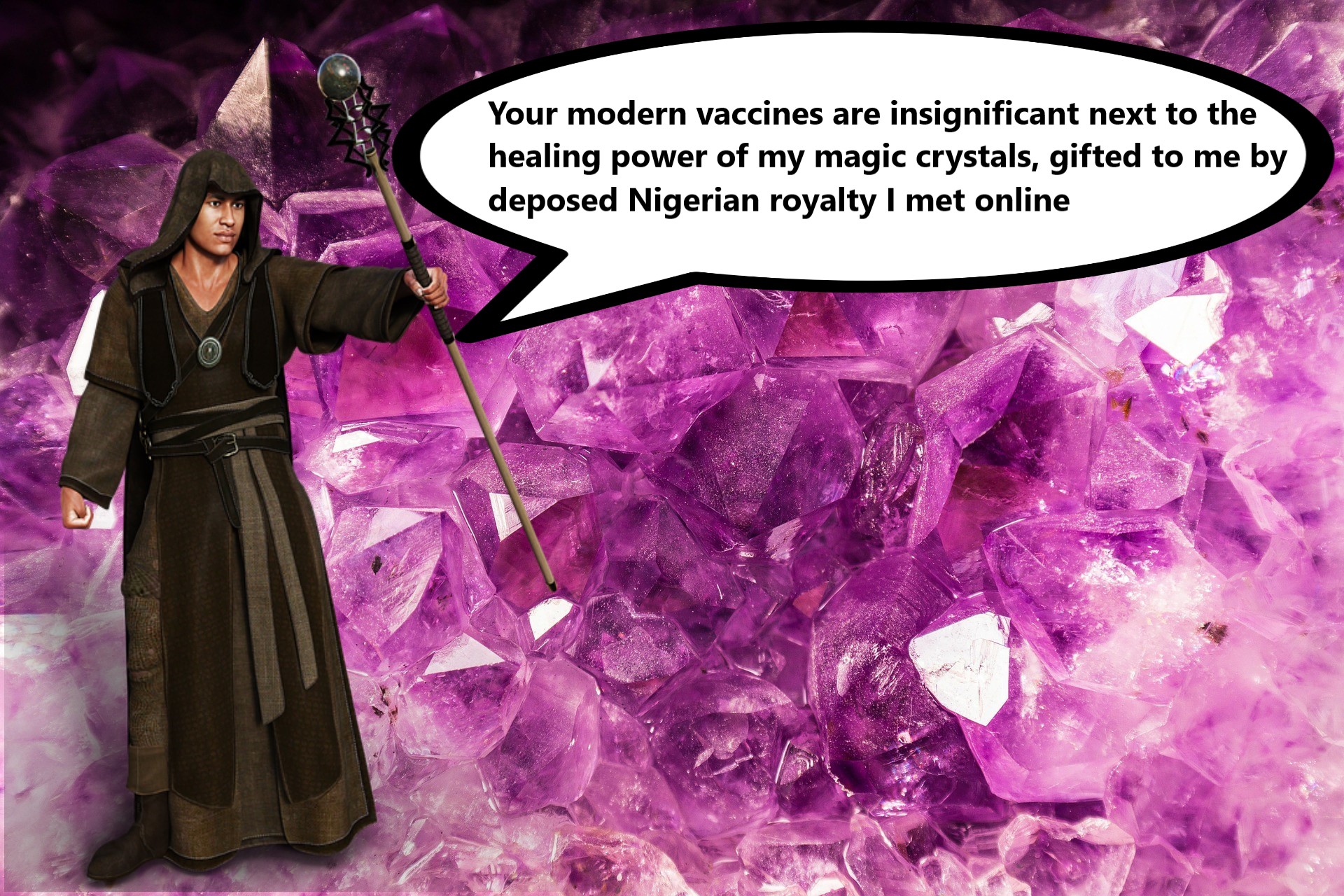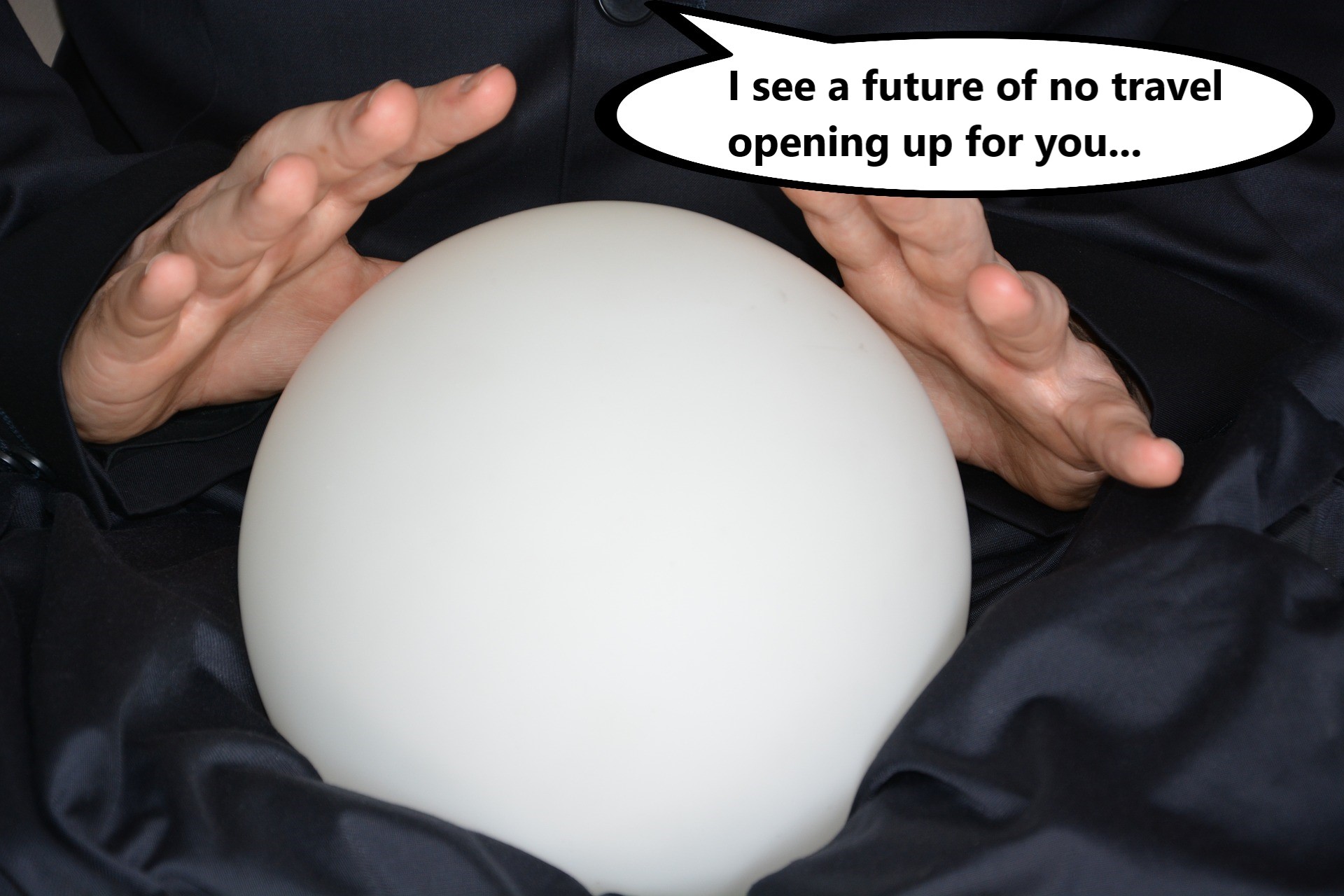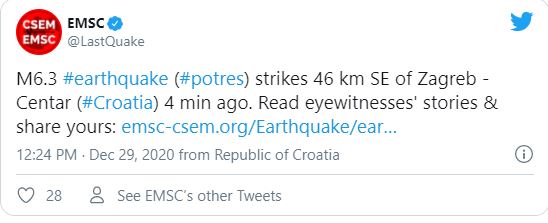Horrific Hate Crime Reported in Zagreb Against a Gay Man
December 29, 2020 - Croatian media report today about a horrific hate crime perpetrated against a gay man in Zagreb's Maksimir Park last weekend.
Hajdi Karakaš-Jakubin reports the entire story for Jutarnji list: a 50-year-old man was taking a night walk in the Zagreb's biggest park, Maksimir, close to his home, this Saturday evening. Two unknown assailants first asked him if he had a cigarette lighter, and when he said he didn't, they started asking him various questions to find out what he was doing in the park. He started feeling uncomfortable, so he told them he was there to meet a friend (although he was just taking a walk in the evening!), and the assailants threw a Molotov cocktail on him and started running away. Soon his jacket caught on fire, and he was saved by brave passers-by, who ran to help him and contacted the emergency services.
He's currently hospitalised in the Trauma Clinic in Zagreb, with second-degree burns to his body, arms, neck, and face. Zagreb police department reported that they're determining all the relevant information about this case, but it will be very difficult to find those responsible, because they had surgical masks on, so the victim will probably not be able to identify them, even if some suspects are found.
Zagreb Pride association sent a strongly-worded letter to the Croatian media, condemning the attack. They say that they're terrified with the crime and that it's probably the worst anti-gay hate crime ever reported in Croatia. They demand a swift and decisive investigation into the crime, and that once the assailants are prosecuted, they are prosecuted for hate crime, and not a lesser crime. They also demand stronger protection for various minority groups (LGBTIQ community, Serbian, African, Romani minorities, as well as refugees and migrants) in the public spaces, which are often attacked by "right-wing gangs". They're offering their support to the victim, and are willing to provide legal and psychological help, if he wants that. They refuse the situation in which the victims of the homophobic violence get blamed for the crimes committed against them. Zagreb Pride stresses that each member of our society has the right to take a free walk in the public park for any reason whatsoever: to get some fresh air during the pandemic, to meet a friend or to set-up a date. They conclude their statement by adding that gay people are not to be blamed for anything just because they are who they are, while the right-wing gangs are to blame.
Croatia Airlines and Trade Air Operate Regular Domestic Routes in January Despite Restrictions
December 29, 2020 - The latest news for flights to Croatia as Croatia Airlines and Trade Air operate regular domestic routes despite restrictions.
Croatian Aviation reports that Croatia Airlines and Trade Air will continue to operate on domestic routes despite the restrictive measures introduced.
Below is the flight schedule on domestic routes in the first 10 days of the new year.
In the first 10 days of January, the Croatian national airline will have three active domestic routes, from Zagreb to Dubrovnik, Split, and Pula via Zadar. The airline reduced the number of weekly operations, adjusting capacity to current demand.
The Zagreb - Dubrovnik line will have 24 return flights in the first 10 days of January, mostly 2 to 3 a day, and two flights are also available on New Year's Day, January 1, 2021. Only on Friday, January 8, is one departure from Zagreb to Dubrovnik announced.
The Zagreb - Split route will have 27 return flights from January 1 to 10. This is a larger number of operations, given that Croatia Airlines operates from Zagreb to Rome via Split. On that flight, it is possible to buy tickets in the domestic segment Zagreb - Split - Zagreb.
The Zagreb - Zadar - Pula - Zagreb will have the smallest number of operations in the first 10 days. Namely, only three flights were announced on this line in the mentioned period, on January 3, 7, and 10, 2021.
Another airline operating on routes within Croatia is Trade Air. The airline did not change its flight schedule due to the introduced measures and continues to operate according to the following schedule:
Osijek - Zagreb - Osijek, 6 times a week, 2 daily flights on Mondays, Wednesdays, and Fridays,
Osijek - Rijeka - Osijek, 2 times a week, on Tuesdays and Thursdays,
Osijek - Pula - Split - Pula - Osijek, 2 times a week, Mondays and Fridays,
Rijeka - Split - Dubrovnik - Split - Rijeka, 2 times a week, on Tuesdays and Thursdays.
Trade Air will also operate on January 1 on the Osijek - Zagreb - Osijek, and Osijek - Pula - Split - Pula - Osijek lines.
For the latest travel info, bookmark our main travel info article, which is updated daily.
Read the Croatian Travel Update in your language - now available in 24 languages.
Croatians Spend 34% of Income on Housing and Food, Newspaper Says
ZAGREB, Dec 29, 2020 - Croatians spend 34% of their income on housing and food, while in the European Union only Romanians spend more on food, Vecernji List daily said on Tuesday.
In 2019, EU household spending on food and non-alcoholic beverages averaged around 7% of the annual GDP, reaching €956 billion.
The share of expenditure on food in the Croatian GDP was 13%, which is above the EU average. This is mostly because prices of basic foodstuffs are nearly on a level with the EU average, while the Croatian GDP is a third lower than the average EU GDP.
The poorer the country, the more its citizens spend on meeting their basic needs, the newspaper said.
Citing Eurostat, Vecernji List said that expenditure on food in Romania accounted for 16% of the country's GDP. It was followed by Croatia (13.3%), Lithuania (12%) and Greece (11%). By contrast, the share of expenditure on food in the GDP was less than 3% in Ireland and Luxembourg.
Last year, Croatians spent €7.2 billion on food and non-alcoholic beverages, compared to the much richer Irish who spent €8.2 billion. Slovenians spent €3.6 billion, which in absolute terms is similar to Croatians given the size of the population, Serbians spent €7.2 billion, citizens of Bosnia and Herzegovina €4 billion, Slovaks €9.1 billion, Hungarians €12.6 billion, Austrians €20 billion and the most numerous Germans €185 billion.
On average, EU households spent 13% of total consumption expenditure on food and non-alcoholic beverages, which ranks as the third-largest category of household expenditure after housing, water, electricity, gas and other fuels, which accounted for 23.5% of household expenditure, and transport (13.1%).
In Croatia, expenditure on food accounted for 18% of total household expenditure, followed by housing (16%) and transport (10%), Vecernji List said.
Moderate Quake Rocks Island of Vis
ZAGREB, Dec 29, 2020 - A moderate earthquake measuring 3.1 on the Richter scale on Tuesday morning rocked southern Dalmatia, with its epicentre being around 10 kilometres southwest from the island town of Vis, the Croatian Seismologic Service reported.
The earthquake occurred at 5.18 a.m. and it was felt in southern Dalmatia.
During the night and early on Tuesday morning a few moderate and weaker earthquakes rocked the area of Petrinja, southeast of Zagreb, after that town and the neighbouring town of Sisak were hit by a quake measuring 5.0 on the Richter scale on Monday morning.
Over Dozen Smaller Earthquakes Recorded in Petrinja Area Since Monday Morning
December 29, 2020 - More than a dozen smaller earthquakes have been recorded in the Petrinja area since Monday morning.
Update 12:24 - 6.3 quake 46km SE of Zagreb
Index.hr reports that damaged homes, mostly roofs and chimneys, and numerous cracks in farm and residential buildings are the consequences of two stronger and more minor earthquakes that hit Sisak, Petrinja, and other settlements in Sisak-Moslavina County Monday morning.
A strong earthquake measuring 5.0 on the Richter scale was recorded in the Petrinja area Monday at 6:28. Subsequently, at 7:49 and 7:51, two more earthquakes, this time 4.7 and 4.1 magnitudes, were recorded, with the epicenter 5 km southeast of Petrinja.
Fortunately, the quakes did not cause any casualties, but there is a lot of material damage.
"The night did not go very well; there were several more earthquakes that we felt in Petrinja, tonight and this morning," said the mayor of Petrinja this morning on Croatian Radio.
"As of yesterday morning, we have had more than a dozen earthquakes, two stronger. This morning at 1:19, there was an earthquake of 3.0 according to the Richter scale, and at 7:05, an earthquake of 2.5. There were a couple of weaker ones too. That is expected and normal. Fortunately, the series is weaker," said seismologist Krešimir Kuk.
This morning at around 7 am, a magnitude 2.5 earthquake shook the area. According to the EMSC, the epicenter was at a depth of 1 kilometer and 21 kilometers from Sisak, and 43 kilometers from Zagreb. At 1:19, residents felt a slightly stronger earthquake, 3.0 on the Richter scale, the epicenter at a depth of 2 kilometers and 15 kilometers from Sisak.
Index's team went to Petrinja on Monday to talk to citizens and emergency services about the situation.
"It sounded like thunder. Bottles and shelves were falling," said one citizen, adding that his house was destroyed in the war. "It was category 5, the category before the demolition. I built it for ten years," he says.
Firefighters from Hrvatska Kostajnica immediately went to the scene, and when they saw that there was no major damage, they came to Petrinja to help their colleagues.
"We went according to the report, and when we saw that there was no major damage, we came to help our colleagues in Petrinja," said the firefighter, adding that they had interventions throughout the morning and that they were no longer counted.
"It's awful; I wouldn't wish this on anyone. It's a pity for us in the workshop, in the house, the walls are cracked, and the dresser has been moved in the middle of the living room," said one citizen.
To read more about breaking news in Croatia, follow TCN's dedicated page.
VIDEO: Split Riva Flooded and More as Hurricane-Like Jugo Winds Rip Across Dalmatia
December 29, 2020 - A look at the Split Riva flooded as hurricane-like jugo winds ripped across Dalmatia on Monday night.
Jutarnji List reports that gusts of the stormy south wind jugo, which raged across the Adriatic on Monday, caused waves several meters high, due to which maritime traffic was partially suspended.
The famous Split Riva could not even be spared, as scenes of it flooded were shared all over local media. The waves even reached the walls of Diocletian's Palace. Fortunately, the winds weakened overnight.
Around 9 pm, the peak of wind strength in Dalmatia was recorded. The strongest gusts were measured at the Star Village Mosor, located in the city of Split, where jugo had gusts up to 140 km / h.
On Monday night, these hurricane-like winds created waves on the open sea up to six meters high in the central Dalmatia area. They were between two and four meters in the coastal area, flooding the waterfronts in even more coastal towns. The meteorological station on Marjan recorded hurricane gusts in the Split area for several hours, the State Hydrometeorological Institute in Split said.
Waves also flooded the waterfront in Kaštel Gomilica, where water entered a house in its eastern part. Firefighters intervened and pumped out water, Kaštel Gomilica reported from the DVD.
During the day, all catamaran and most ferry lines were interrupted, and due to wind gusts and several-meter-high waves, the ferry that was supposed to sail from Supetar to Split and return to Supetar was postponed last night, the head of Jadrolinija's agency in Split Jelena Ivulić confirmed.
All catamaran lines that connect Split with the central Dalmatian islands were interrupted on Monday due to unfavorable weather conditions at sea.
Ivulić stated that the ferry lines Split-Vela Luka-Lastovo, Trogir-Drvenik Mali-Drvenik Veli, Sumartin-Makarska, and Sucuraj-Drvenik were also interrupted due to bad weather.
On Tuesday, the Adriatic is expected to be partly cloudy with occasional rain, locally abundant. The interior is partly sunny and mostly dry. There may be sleet and snow in the highest mountains.
A moderate to strong southwest and south wind will blow, with occasional gusts of wind on the Adriatic, and will weaken towards the end of the day. The lowest air temperature on the coast and islands will be from 7 to 11, and the highest daily from 10 to 15 degrees Celsius.
Unstable and changeable weather is expected in the coming days and occasional rain, which may be more abundant in some places on Wednesday. The wind will be mostly weak to moderate southwest and northwest, and on Friday, the south wind will strengthen again.
To read more about news in Croatia, follow TCN's dedicated page.
What Kind of Life Awaits Croatian Anti-Vaxxers Who Refuse Vaccination?
December 29, 2020 – The arrival of COVID-19 vaccines in Croatia has been met with much relief by many people. But, not everyone is happy. Conspiracy theorists - those who favour disreputable sources and 'whispers on the wind' to real science - are reticent, some even angry. So, what kind of life awaits Croatian anti-vaxxers who refuse to take the vaccine?
The people who inhabit the lands now known as Croatia have a long history of being pushed around. For this, they cannot be blamed. Greatly outnumbered by the occupying armies of some of the most powerful empires of all time - the Romans, Venetians, Austro-Hungarians and Ottomans - their rebellions against such overlords have been relatively small in number. Their default setting has been to visit the kafana at the end of the day and moan, grumble, gossip - perhaps even plot - against those who make their lives disagreeable.
Croatia was finally freed of its last imposing masters over two decades ago. But, true to form, the grumbling in the kafanas has continued. Except, now that the kafanas are all closed in response to Coronavirus, the moaning has moved almost exclusively to the internet. And, it has reached a shrieking pitch.
The arrival of COVID-19 vaccines in Croatia has been met with much relief by many Croatians. The news of the first vaccinated citizen, followed by the first vaccinated healthcare workers, was also well received. You can tell this from the overwhelmingly large amount of 'likes' such news generates when posted to social media. These warm welcomers of good news in Croatia could be best described as the silent majority. And, in the same way most Croatians lay subdued for lifetimes under bullying empires, this silent, sensible majority is drowned out by the deafening vitriol of the unhinged within the comments sections underneath.
These arch-moaners appear in the comments on most issues, railing against the increasingly modern ways of the world. On the issue of Coronavirus and the incoming vaccines, it is the Croatian anti-vaxxers who are angrily dominating the discourse.
It appears near pointless to debate with them. They are not ones for science, facts nor reasonable debate. Not for them are the reports of scientific journals, the BBC, The New York Times, The Guardian, Al Jazeera, or The Washington Post. Instead, they cite the most spurious of sources – a website nobody else has heard of, a document written by a friendless doctor from the Texas farming community who has a curiously photoshopped profile picture, a Youtube video made for the same price as a hamburger and narrated by a 17-year-old from the outside toilet. There's no point telling them that the vaccines coming onto the market were actually designed back on January 13, just two days after the Coronavirus genetic sequence had been made public and that it has taken until now to produce them, due to stringent testing on their safety. No. Because for Croatian anti-vaxxers, whispers on the wind, the horoscopes, crystal ball of the fortune-teller and the inescapable stare of Braco are just as reliable - if they're telling you what you want to believe. For whichever lunatic theory you want to adopt, you can look online and you'll be sure to find some crackpot to back it up. The internet is the great leveller for Croatian anti-vaxxers as well as everywhere else - a place where deposed Nigerian royalty who want to put money in your bank account have just as much credence as an 80-year-old media title with a blemishless reputation.
Of course, while life is too short to even debate with anti-vaxxers in Croatia or anywhere else, that's not to say they are undeserving of sympathy. In our recent interview with a doctor working on the Coronavirus frontline in a Croatian hospital, they generously raised an interesting defence of the tin-foil hat brigade - “It's not always the content of the conspiracy theory that appeals to these people as much as it is their inability to accept facts – the truth – because they have little faith in the authorities that are telling them.”
Finding fault in authorities is far from unique to Croatia. Yes, there is a certain amount of kafana moaning and grumbling all over the world, and often for good reason. Politicians are more than aware of this. And, in an era of widespread voter apathy and low voter turnout, where yet another silent majority has the potential so easily to change the names of those who govern, this is exactly why politicians will abstain from making the Coronavirus vaccines mandatory. With things as they currently stand, it is near inconceivable that Coronavirus vaccines will be made compulsory in Croatia or in any other western democracy. Good news for Croatian anti-vaxxers? Well, not quite, because it is highly likely that the private sector will be among the greatest of persuaders for vaccination. It is not unthinkable that we are about to enter a wholly new two-tiered society – the vaccinated and the unvaccinated. And signs of what that life might look like for Croatian anti-vaxxers are not good. They are not good at all.
“Vaccination could become one of the measures that would make it possible to come to events,” Stefan Breitenmoser, general manager of the Professional Association of Swiss Organizers of Concerts, Events and Festivals, told Sonntags Blick in the past week. In Switzerland, vaccination began on Wednesday and it is free. It is not only the entertainment events industry that is considering the measure - the Swiss Football League similarly said it is giving it serious consideration. Professional sports and the events industry have lost billions during the pandemic. The 2021 Olympics hangs on a knife-edge in regards to accepting audiences into its stadiums – it has already been delayed by a year. It is highly conceivable that access to all large events in future will be dependent on proof of vaccination. The National Stadium in Japan was due to host some of the key events of the 2020 Summer Olympics. The whole event has been delayed until summer 2021, in response to the pandemic © Arne Müseler
The National Stadium in Japan was due to host some of the key events of the 2020 Summer Olympics. The whole event has been delayed until summer 2021, in response to the pandemic © Arne Müseler
In an interview on N1 television in Croatia over recent days, epidemiologist Branko Kolarić - a member of the Scientific Council of the Government of the Republic of Croatia - echoed similar thinking. He stated that a list of the vaccinated will be carefully maintained, most likely through some kind of e-documents, and although vaccination will not be mandatory, vaccination will bring some benefits - such as air travel, group gatherings and attendance of concerts and festivals. You are surely not going to see police or soldiers checking your vaccination status at the entry to a dance music festival in Dalmatia. But, it is highly likely that event organisers will insist on proof of vaccination before granting entry. Even if they don't wish to, it is more than conceivable that they would not be granted the necessary licenses nor insurance without assuming such a position.
Another industry that has lost billions in the pandemic is the travel and tourism sector. Little surprise then to have found budget airline Ryanair launching a new campaign of 'Jab and go' over the last few days. The suggestion is crystal clear – get vaccinated, you can come on our planes, we'll allow you to travel. Ryanair will certainly not be the last airline to assume responsibility for vetting passengers' vaccination status. Croatian anti-vaxxers had better be really happy to be here, because international borders may well be permanently closed for them while they remain unvaccinated.
So, a life with no spectating at big sports events, no more large concerts or music festivals and no more international travel is what seems to be just around the corner for Croatian anti-vaxxers. Sounds harsh, unpleasant. But what if it extends to libraries, schools or even hospitals? We don't yet know anything concrete about the lower tier of existence Croatian anti-vaxxers may choose to dwell in. But, it's not where I want to live. Perhaps they'll even be forced to drink exclusively in their own anti-vaxxer kafanas? For sure they'll be easy to identify – they'll be the ones from which the loudest moans are coming.
The views expressed in this article are solely those of the author and are not necessarily shared by Total Croatia News
When Will Pfizer Coronavirus Vaccine Become Available From Your GP?
December the 29th, 2020 - The new Pfizer coronavirus vaccine has finally arrived in Croatia, with Branka Anicic being the first person in the Republic of Croatia to receive it. She gave a touching statement to the media in which she urged everyone to receive the vaccine in order to protect themselves, their friends and families, and of course - for the sake of returning to normality.
While that might be all well and good, the next logical question on the lips of just about everyone is just when they'll be able to get access to the Pfizer coronavirus vaccine, and when will GPs be able to administer the vaccine to the general public?
As Poslovni Dnevnik writes, there are numerous factors to be taken into consideration in this regard, and Krunoslav Capak, the director of the Croatian Institute for Public Health, explained things in more detail:
"In the first phase, we're planning to vaccinate healthcare workers who are on the front line of the fight against the spread of the virus, as well as the residents of nursing homes. Only then will the vaccine be distributed to family physicians (GPs). We sent some very detailed instructions for the Pfizer coronavirus vaccine out to the field. We also expect the Moderna coronavirus vaccine to arrive by the second half of next month, and that can remain in the fridge for up to 30 days. So, we wanted to spare the doctors any stress and not send them the Pfizer coronavirus vaccine, which can only last for five days as opposed to 30. We'll agree on everything that needs to be done with the doctors, presentations have already been sent out to them, and there's a recording of the webinar where our experts give instructions available to them.''
The Pfizer coronavirus vaccine and potential side effects
As for potential side effects, a survey was conducted over the phone. No side effects have been reported so far, Halmed also had nothing reported to it.
''There were two cases of allergic reactions at the ''Dr. Fran Mihaljevic'' Infectious Diseases Clinic in Zagreb, noted Capak. Alemka Markotic, the director of the aforementioned clinic, added that those people had two mild rashes.
New doses of the Pfizer coronavirus vaccine are due to arrive in Croatia later on this week.
For the latest travel info, bookmark our main travel info article, which is updated daily.
Read the Croatian Travel Update in your language - now available in 24 languages
Zagreb Cable Car Not Even Finished, Repairs Already Needed
December the 29th, 2020 - It's common knowledge that things tend to grind along at somewhat of a snail's pace in Croatia, and the much talked about Zagreb cable car which will certainly add more life to beautiful Sljeme which towers above the capital, isn't immune to this endemic slowness.
As Poslovni Dnevnik writes, apparently, the Zagreb cable car will not start running on January the 3rd, 2021, as was previously and proudly announced by Zagreb Mayor Milan Bandic, 24sata reports, adding that the Zagreb cable car, although not really even entirely finished yet, already requires repairs. The problems began to occur during the process of obtaining all the documentation and the necessary permits for the Zagreb cable car, Jutarnji list writes, which shouldn't come as a shock to anyone who knows what trying to do even the most basic of things in Croatia is like.
In order to obtain a permit for use, it is necessary to perform a technical inspection, and after the permit is granted, a certificate is still required and needs to be issued by the relevant Ministry of Transport. Given the fact that the festive period is upon us and things run at an even slower speed, it is difficult to expect that everything will be done, dusted and up and running by January the 3rd, 2021.
In addition, as stated 24sata writes, even when the permits needed are issued, works will have to continue because repairs need to be done, that is, the steel structure of the roof of the upper station on Sljeme itself must be strengthened. Due to these additional works, the Zagreb cable car project, the associated costs of which have been constantly increasing and have now reached the staggering amount of 710 million kuna without VAT, could turn out to be even more expensive.
For the latest travel info, bookmark our main travel info article, which is updated daily.
Read the Croatian Travel Update in your language - now available in 24 languages
Hrvatska Postanska Banka Has New Service for Croatian Account Holders
December the 29th, 2020 - Croatian account holders at Hrvatska postanska banka (HPB) will be the ones to be able to enjoy a unique service in Croatian terms, and one which many people, particularly foreigners, find themselves discussing.
As Poslovni Dnevnik writes, given the fact that it is constantly expanding and improving the offers of its products and services for its numerous different groups of clients, and based on the needs and requirements of residents who do not have the ability to collect foreign checks in the Republic of Croatia, Hrvatska postanska banka has now decided to offer the service of processing foreign checks within its business network.
Hrvatska postanska banka is usually striving to simplify financial operations for Croatian residents who receive their pensions or other benefits through means issued from outside of the Republic of Croatia, and to provide them with an accessible and fast way to pay their funds. As such, Hrvatska postanska banka's brand new service is extremely important in cases when the payers or issuers of foreign checks insist on payment by cheque.
Hrvatska postanska banka accepts bank checks issued in Switzerland, Liechtenstein, Norway, all European Union countries except France, Denmark and Great Britain, and it even accepts US Treasury checks from the United States of America, ie those in euros, US, Australian and Canadian dollars, Swiss francs, British pounds, Swedish and Norwegian krone and Japanese yen.
In the processing of foreign checks, Hrvatska postanska banka acts as an intermediary in the business being done between the issuer and the user of the cheque in accordance with all appropriate international standards. All that is needed to cash a foreign check is to have a foreign currency transaction account opened with this bank.
This is a unique service on the Croatian market and is, as previously touched on, often the topic of conversation among foreign residents who tend to come unstuck when faced with having to deal with foreign currencies. The new service can only be realised in Hrvatska postanska banka centres and branches.
For the latest travel info, bookmark our main travel info article, which is updated daily.
Read the Croatian Travel Update in your language - now available in 24 languages



